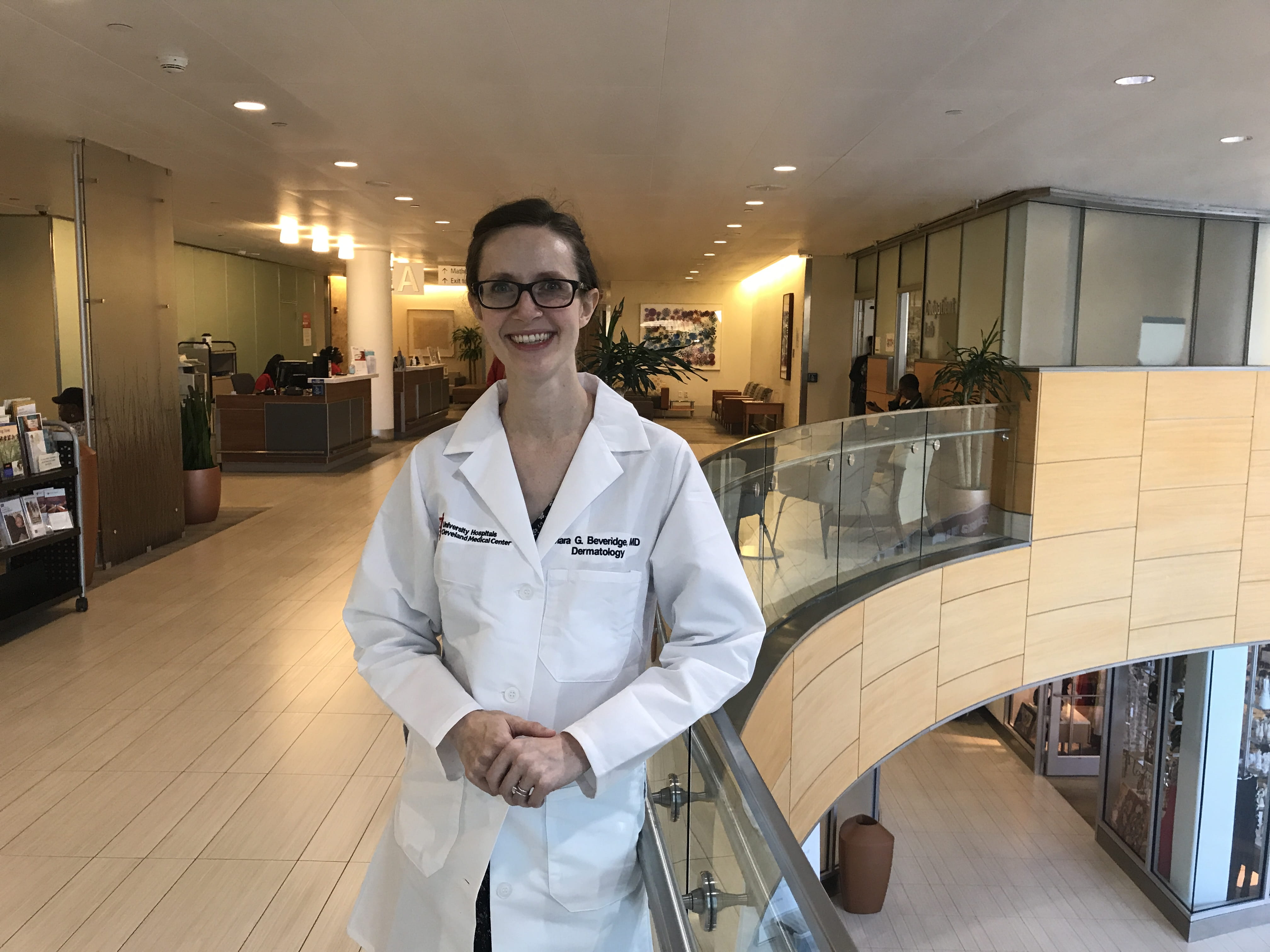Supportive Oncodermatology at University Hospitals
September 25, 2018
New specialist manages skin, hair, nail conditions resulting from cancer treatment
Anti-cancer therapy is notoriously tough on the body. Itchy rashes, thinning hair and brittle nails are common for patients undergoing chemotherapy, and dermatitis may develop for patient receiving radiation therapy. Now UH Seidman Cancer Center can connect physicians with a dermatologist who has experience in recognizing and treating these conditions.
Mara Beveridge, MD, FAAD, is a board-certified dermatologist with a special interest in treating skin toxicities of anti-cancer therapy. She can help manage the changes in a patient’s skin, nails and hair related to cancer treatments, enhancing their quality of life and minimizing interruptions in therapy.

“A lot of what I do is communicating and coordinating with oncologists,” says Dr. Beveridge, who joined UH in July and has clinic at UH Seidman Cancer Center on Mondays. On other days, she sees patients in her office at UH Minoff Health Center at Chagrin Highlands in Beachwood.
Dr. Beveridge trained at the University of Chicago’s Pritzker School of Medicine and in the dermatology residency program, where she witnessed the myriad side effects of new cancer trials and anticancer therapies. Powerful chemotherapeutic drugs have improved patient survival but may trigger dermatologic toxicities.
Supportive oncodermatology is a relatively new field, first named in 2011 by Dr. Mario Lacouture, now at Memorial Sloan Kettering Cancer Center. It was a response to the explosion of new targeted and immunotherapies that brought with them new and previously undescribed dermatologic reactions and side effects.
“Training at an academic medical center, you have your finger on the pulse of the newer drugs coming out and their side effects,” says Dr. Beveridge, who focused on this area as a sub-specialty of dermatology. “We were all seeing a range of new rashes that had not been seen or described before. This field is still in its infancy, but it is growing.”
Dr. Beveridge sees both cancer consults and general dermatology patients in her outpatient practice, including skin cancer screenings and cases of psoriasis and eczema. Her goal is to see urgent cancer treatment-related skin conditions within one to two business days. Severe side effects can happen suddenly and unexpectedly. In these cases, prompt connection with a dermatologist can sometimes prevent a hospitalization or interruptions in treatment.
“I’ve always been able to get patients to a place where they’re comfortable,” says Dr. Beveridge. “It’s a balance between the oncologist and patient to see what level of control we can get the patient to, or if we want to change medications, delaying or altering the dose.”
To make a referral to Dr. Beveridge, call 216-844-8200 or email Mara.Beveridge@UHhospitals.org.
Tags:


